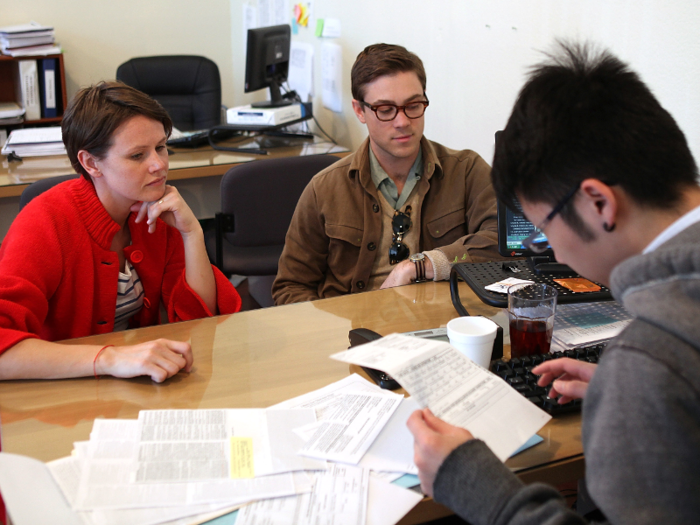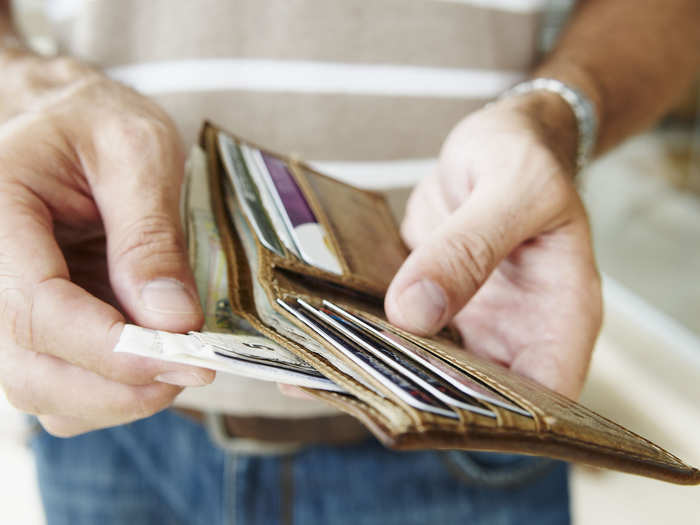- Home
- slideshows
- miscellaneous
- The 7 best ways to get out of debt starting today, according to financial planners
The 7 best ways to get out of debt starting today, according to financial planners
List all of your debts and their interest rates

Scrutinize your spending and make a budget for your spending

Financial planner Colin Moynahan puts it bluntly: "You got into this because you spent more than you're making."
In his experience, he says, "the first thing you have to do is control the spending and create a budget." If he sees a client is spending too much each month, that needs to change before much else can. Otherwise, there won't be much left over to put towards repaying those debts.
If you're in debt because of overspending, it's time to take a look at your habits, your needs, and your income. Even if your debt isn't related to overspending — student loan debt, for instance — a budget can help find more money to free up for payments.
Read more: I saved almost $2,000 just by tracking my money on a spreadsheet
Make sure you're still saving for emergencies and goals

If you don't have an emergency fund, you'll need to start saving for one — and it can't wait.
Experts typically recommend that an emergency fund hold three to six months' living expenses (sometimes up to nine months, depending on your situation) in case you lose your job or have another emergency. It should be stored somewhere liquid and risk-free, and some experts recommend putting it in a high-yield savings account so it can earn a small amount of interest while you aren't using it.
Having an emergency fund is critical, and could help save you from going into debt again if an emergency or something unexpected happens. If you don't yet have one, saving for this while paying off debts is crucial.
Don't forget about retirement savings — but consider hitting pause

For younger people, it might be best to pay off debt before you start doing other things, like saving for retirement.
Pappis says that especially for those who are rather young, there's still enough time to save before you retire, and making debt repayment a priority could be a big help down the road.
"If you're a young professional, becoming debt-free often lead towards better saving habits that will allow you to focus on unique long-term goals," he says.
Financial planner Ryan Cole previously told Business Insider that he draws the line at 9%: If the interest rate on your debts is more than 9%, they immediately become more urgent than your retirement savings. In this case, your debt is so expensive that it's costing you more than that money could likely earn in investments, and you need to get rid of it. (The exception to his 9% rule is for people who have 401(k)s with an employer match — in that case, he recommends saving enough to get the match while making your debt payments.)
Pay it off the smart way

You've probably heard the adage "work smarter, not harder." There's an equivalent to this when it comes to debt payoff.
Moynahan sees scenarios where clients are working to pay down their debts, but they might not be doing it the smartest way possible. "Too often I see clients, they've got three different credit cards and they're just paying $200 each month towards each of the three credit cards, and the minimum payment will be $125," he says.
His next questions generally catch clients off guard. "'That extra $75, how did you choose to apply it? Why are you applying it evenly to all of the cards? Do they each have the exact same interest rate?'" he asks.
He asks these questions because it's possible to be more strategic with your payments: If you make the minimum payment on each of your debts, and then divert any extra money to the debt with the highest interest rate (also known as the debt avalanche), you end up paying less money in the long run.
Understanding your debt will help you pay it off smarter and faster, and hopefully save you money, too.
Consider consolidation

If you're working with credit card debts, you might want to consider consolidating your debts, says Moynahan. "If you're able to consolidate that debt into one that carries better terms, that could be a great option," he says.
Consolidating your debt means turning all of your debts into one single debt by getting a balance transfer credit card or a personal loan. The card issuer or the lender assumes your debts, and you make a single payment to that company going forward.
This option is ideal for credit card debts, because they often have high interest rates. If you can consolidate all of your credit card debt into one debt with a lower interest rate, you can reduce the amount you owe in interest.
Plus, your debts will then be much easier to keep track of and pay when they're all in one place.
Consider working with a financial planner

If you don't think that you're quite ready to take on debt repayment completely on your own, you might want to consider making an appointment with a financial planner to talk it over.
A financial planner can help put your debts in perspective, and help you understand how to pay off debt the smart way. They'll help you create a plan to repay debts, save money, and more, which can be a big help. Since everyone's finances are different, it can help to have personalized advice and a plan that's meant just for you.
Need help getting out of debt? SmartAsset's free tool can find a licensed financial adviser near you »Popular Right Now
Popular Keywords
Advertisement